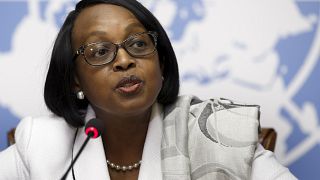monkeypox
With the latest updates recording 9,200 cases of monkeypox in 63 countries, the World Health Organization said Thursday it would reconvene its expert committee on July 21 to decide whether the outbreak constitutes a global health emergency.
The WHO Regional Director for Africa insisted the continent faced an acute risk: "For Africa, the threat is severe, Dr. Matshidiso Moeti, said.New WHO analysis have revealed a 63% increase in the number of zoonotic outbreaks in the African region in the 10 years to 2022 compared to the previous decade. One in every three confirmed public health event in the region, in the past decade, was a zoonotic disease outbreak."
Monkeypox is a viral zoonotic disease, meaning a virus transmitted to humans from animals. If this year's spread in non-endemic regions is unprecedented, cases reported in the typical tropical rainforest areas remains relatively low Dr Moeti said.
"Although there's been a notable increase in monkeypox cases since April this year compared to the same period in 2021, the positive news is the numbers are still lower than for the 2020 outbreak peak when the region recorded its highest ever monthly cases. Following a sudden drop in 2021, 203 confirmed cases of monkeypox have been recorded in the region since the beginning of the year."
On June 23, the WHO convened an emergency committee of experts to decide if monkeypox constitutes a so-called Public Health Emergency of International Concern (PHEIC) -- the highest alarm that the WHO can sound.
But a majority advised the WHO's chief Tedros Adhanom Ghebreyesus that the situation, at that point, had not met that threshold. The WHO's 16-member emergency committee on monkeypox is chaired by Jean-Marie Okwo-Bele from the Democratic Republic of Congo, who is a former director of the WHO's Vaccines and Immunisation Department.
There have been six PHEIC declarations since 2009, the last being for Covid-19 in 2020 -- though the sluggish global response to the alarm bell still rankles at the WHO's headquarters.
Snapshot profile
According to available statistics, almost all patients affected thus far are male, with a median age of 37, with three-fifths identifying as men who have sex with men.
The committee will look at trends, how effective the counter-measures are and make recommendations for what countries and communities should do to tackle the outbreak, Tedros told a press conference on Tuesday.
He said the WHO was working closely with civil society and the LGBTQ community, "especially to tackle the stigma around the virus" and spread information to help people stay safe.
The normal initial symptoms of monkeypox include a high fever, swollen lymph nodes and a blistery chickenpox-like rash.
But the report said that in this outbreak, many cases were not presenting with the classically-described clinical picture.











01:49
BRICS summit ends on health issues and role of global south countries
01:04
South Africa reports new bird flu outbreak on poultry farms
Go to video
Paraguayan town celebrates vibrant Kamba Ra'anga festival with masks, fire and tradition
00:50
Ons Jabeur retires from Wimbledon Opener due to breathing issues
11:15
AI drones lead breakthrough against malaria in Africa [Business Africa]
01:29
Experts warn of danger of exercising in extreme heat and humidity